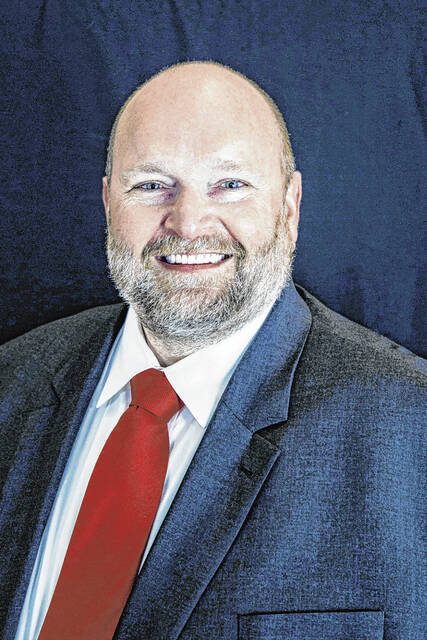Twelve local nonprofits that applied for federal COVID-19 revenue replacement funds through the Bartholomew County and Columbus city governments will collectively receive nearly $905,000.
The Columbus Board of Public Workers approved allocating $557,397 to nine local nonprofits Tuesday from federal economic stimulus funding that the city received through the American Rescue Plan Act. The green light from city officials came one day after the Bartholomew County commissioners approved sending $347,500 to 10 local nonprofits.
Federal regulations allow local governments to assist nonprofits who suffered revenue loss due to the virus with money obtained through the ARPA, county Auditor Pia O’Conner said.
Elected officials from the county and city governments collaborated and decided which organizations would get funds, said Robin Hilber, Columbus assistant director of community development, who was involved with the effort.
The officials included O’Conner and Bartholomew County Commissioner Tony London, as well as Columbus City Council members Elaine Hilber, Grace Kestler and Frank Miller. Applications were due Sept. 30.
The money being allocated to the nonprofits will come from $8 million in ARPA funds that the county received last spring and $4.2 million that the city received, officials said.
“We wanted to make sure we were getting the biggest bang for the buck,” London said. “We wanted to make sure these organizations were supported the best we could with these funds.”
Overall, seven nonprofits will receive funding from both the city and the county — including the Columbus Area Visitors Center Turning Point, Mill Race Center, Foundation for Youth, Lincoln Central Family Neighborhood Family Center and YES Cinema, Just Friends Adult Day Services and kidscommons, according to public records.
Five other nonprofits will receive funding either from the city or the county. The city will provide the Columbus Area Chamber of Commerce with $32,000 and the Council for Youth Development with $13,000. The county will allocate $25,000 to the Bartholomew County Historical Society and $10,000 each to Family Service of Bartholomew County and the Bartholomew County Human Society.
The Columbus Area Visitors Center will receive a total of $200,000 — the most of any of the nonprofits — followed by Mill Race Center with $179,097, Lincoln Central Neighborhood Family Center and YES Cinema with $150,000. Additionally, $100,800 will go to Just Friends Adult Day Services, $100,000 to Foundation for Youth, $45,000 to kidscommons and $40,000 to Turning Point.
Some county officials expressed mixed feelings regarding the choices made for ARPA expenses and recipients, commissioners Chairman Larry Kleinhenz said.
But what some elected officials may not understand is the extra demand and pressure placed for nonprofit services since the COVID-19 pandemic began, United Way of Bartholomew County President Mark Stewart said.
“There were a lot of people who were sick and could not work, or who lost their job or were furloughed,” Stewart said. “Either way, the virus put an additional strain on the not-for-profit sector beyond what would be considered normal.”
Another problem is that a lot of philanthropy has been focused during the pandemic on helping individuals, rather than assisting nonprofits in meeting demand for their services, the United Way president said. In fact, many nonprofit employees have had to put in additional hours regularly just to keep up with demand, he said.
In the not-for-profit sector, much of the delivery of services is done face-to-face. Unfortunately, those one-on-one, in-person conferences were dramatically curtailed by the pandemic, Stewart said.
For example, Family Service Inc. had no choice but to start doing more teleconferencing than face-to-face counseling. Due to stipulations in the Health Insurance Portability and Accountability Act (HIPAA), all video conferencing with clients has to be done under secure conditions, he said.
”Just that transition (from in-person to video conferencing) can be difficult (for therapist and client),” Stewart said. “There are also additional costs incurred just for the technology.”
But the United Way president expressed hope that meetings between different agency representatives will be able to resume on a face-to-face basis in the near future.
One advantage that may emerge from the pandemic, Stewart said, is more of an acceptance of telehealth services, especially for mental health counseling.
“For someone who lives out in a rural area that finds it a burden to come in for face-to-face counseling, (teleconferencing) could be very helpful – especially if they have a child-care issue,” he said.
Many people working for not-for-profits found themselves working extra hours on the front lines of helping people during the height of the pandemic, Stewart said.
“They really rose to the occasion,” the United Way director said. “I am so very proud of them.”
The $1.9 trillion American Rescue Plan Act was signed into law in March after it cleared the House in a 220-211 vote and a 50-49 vote in the Senate, both almost entirely along party lines.
The congressional delegation representing Columbus — Rep. Greg Pence, R-Indiana, and Republican Sens. Todd Young and Mike Braun — voted against the measure, according to congressional records.





